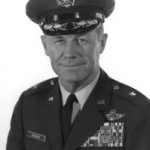Chuck Yeager Loses Ninth Circuit Likeness Rights Appeal
 Orange County – The Ninth Circuit on Monday ruled that pioneering aviator Chuck Yeager cannot pursue claims for unauthorized use of his likeness against two old friends who run an aviation memorabilia business that deals in Yeager-related artifacts.
Orange County – The Ninth Circuit on Monday ruled that pioneering aviator Chuck Yeager cannot pursue claims for unauthorized use of his likeness against two old friends who run an aviation memorabilia business that deals in Yeager-related artifacts.
The appeals court affirmed the Eastern District of California’s ruling that Yeager’s claims were time-barred. The declaration Yeager submitted along with his opposition to the defendant’s summary judgment motion was a sham, replete with hundreds of specific facts Yeager claimed he did not remember at his deposition, the Ninth Circuit said.
In 2008 Yeager, a famous test pilot and retired general who was the first man to break the sound barrier with his legendary flight in the Bell X-1, sued Ed and Connie Bowlin for violations of the Lanham Act, California’s common law right to privacy and the state’s statutory right to publicity. The Bowlins, retired commercial airline captains who became friends with Yeager in the 1980s, own Aviation Autographs, which sells aviation-related memorabilia, including items related to or signed by Yeager.
At his deposition, Yeager did not recall answers to approximately two hundred questions, including questions on topics central to the case. Three months later, on the same day that he filed his opposition to the Bowlins’ motion for summary judgment, Yeager filed a declaration. The declaration contained many facts that Yeager could not remember at his deposition, even when he was shown exhibits in an attempt to refresh his recollection, the Ninth Circuit said.
District Judge William B. Shubb held that Yeager’s declaration was a sham and, for summary judgment purposes, disregarded it where it contained facts that Yeager could not remember at his deposition. Judge Shubb granted the Bowlins’ motion for summary judgment on all claims.
On appeal Yeager argued that the district court should not have struck his declaration, and that, under California’s single-publication rule, the Bowlins “republished” statements about him on their website — and thereby restarted the statute of limitations — when they modified unrelated information on their website. The appeals court rejected both arguments.
The district court could reasonably conclude that no juror would believe Yeager’s weak explanation for his sudden ability to remember the answers to important questions about the critical issues of his lawsuit, the Ninth Circuit ruled.
“It is implausible that Yeager could refresh his recollection so thoroughly by reviewing several documents in light of the extreme number of questions to which Yeager answered he could not recall during his deposition and the number of exhibits used during the deposition to try to refresh his recollection,” the appeals court said.
As for Yeager’s statute of limitations argument, the Ninth Circuit held that a statement on a website is not republished unless the statement itself is substantively altered or added to, or the website is directed to a new audience.













